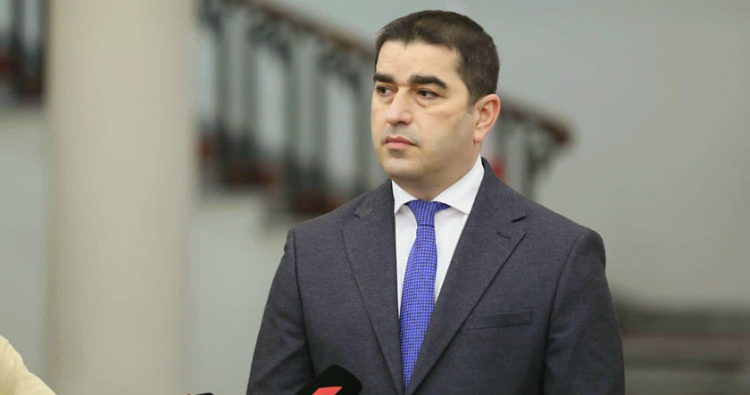Parliament Speaker says domestic opposition “influenced by NGOs” in Public Defender election

The Georgian legislative body on Thursday failed to elect the new Public Defender, with none of the 19 candidates presented to the Parliament chosen for the position. Photo: Parliament of Georgia
Georgian Parliament Speaker Shalva Papuashvili on Thursday said “many people” in the domestic opposition had been “ready for a consensus” in agreeing on a candidate for the next Public Defender, but added the process had failed in the Parliament due to an “ultimatum from NGOs”, and called the development a “sad reality”.
The Georgian legislative body on Thursday failed to elect the new Public Defender, with none of the 19 candidates presented to the Parliament chosen for the position.
In his remarks over the matter, Papuashvili noted a part of the opposition had “from the beginning created such a situation” where the ruling Georgian Dream party would be “forced into a tunnel” where “there is only one way out - [the selection of] their candidate”.
“They did not actively participate in the interviews [of candidates], or even consider any other candidates in general, except for the one nominated behind closed doors by a few NGOs. We said then that it was a pity that NGOs had [assumed] the most destructive role in this process”, Papuashvili said.
This shows one thing - that members of the Parliament, I mean a large part of the opposition, do not realise the responsibility imposed on them by their mandate, that they should be free in their decisions, that they should not obey the calls, some ultimatums presented by some people”, the Speaker said.
“They have a mandate given to them by the voters, and instead of listening to others, they should think for themselves”, Papuashvili added.
On December 13, Anri Okhanashvili, the Head of the Parliament's Legal Affairs Committee, said the ruling party would support an “honest, impartial and qualified” candidate as the country’s new Public Defender.
Selection of an “unbiased” Public Defender is one of 12 conditions outlined by the European Council for granting Georgia the membership candidate status next year, with the ruling party earlier conceding the opportunity of nominating a candidate to the opposition.
The approval of the new Public Defender will require at least 90 votes in the 150-member Parliament, which means the ruling party - which currently has 75 MPs - and the opposition need to cooperate for the selection.
 Tweet
Tweet  Share
Share